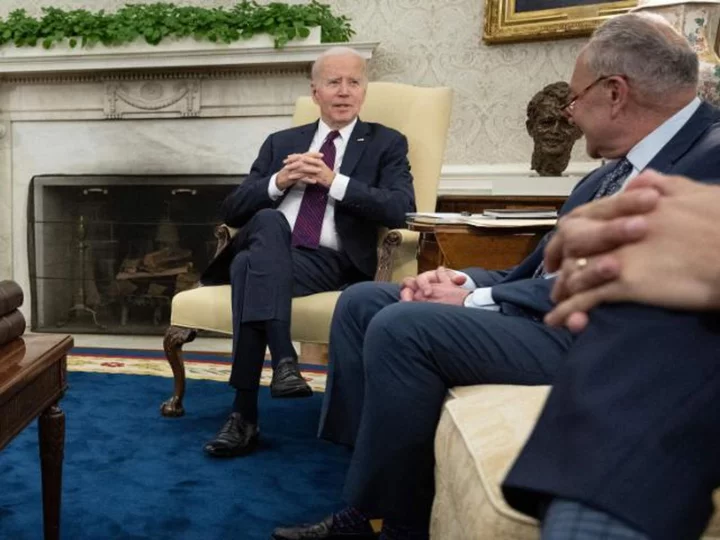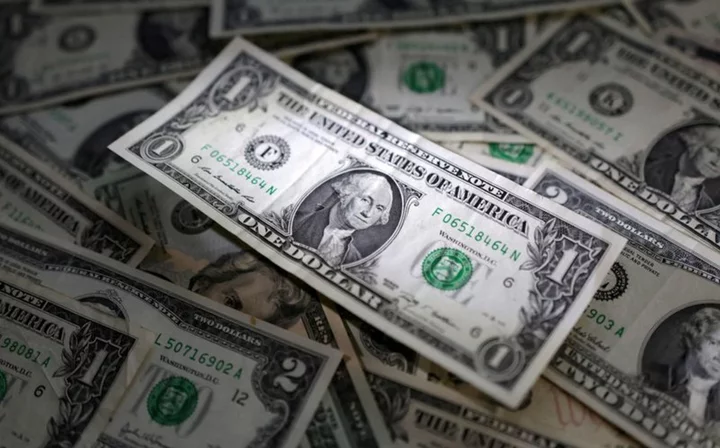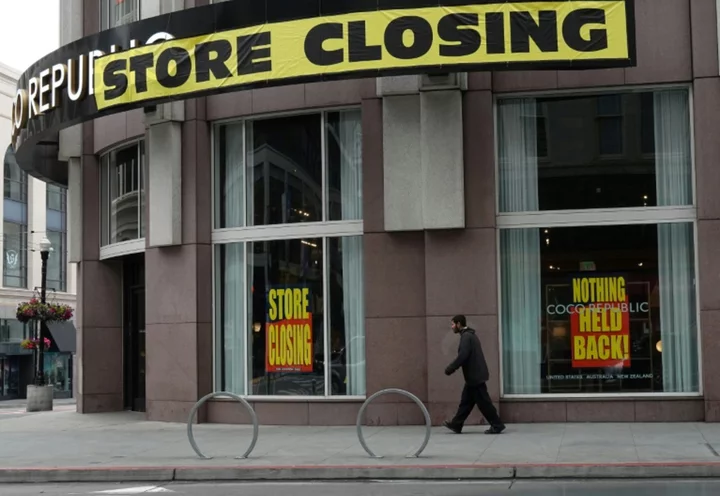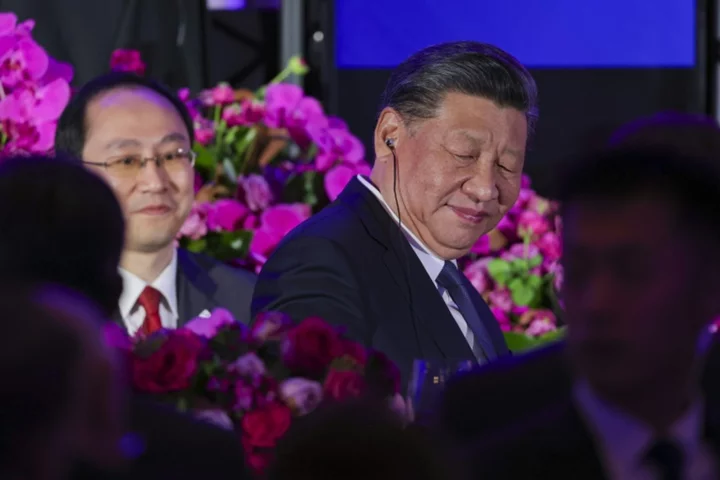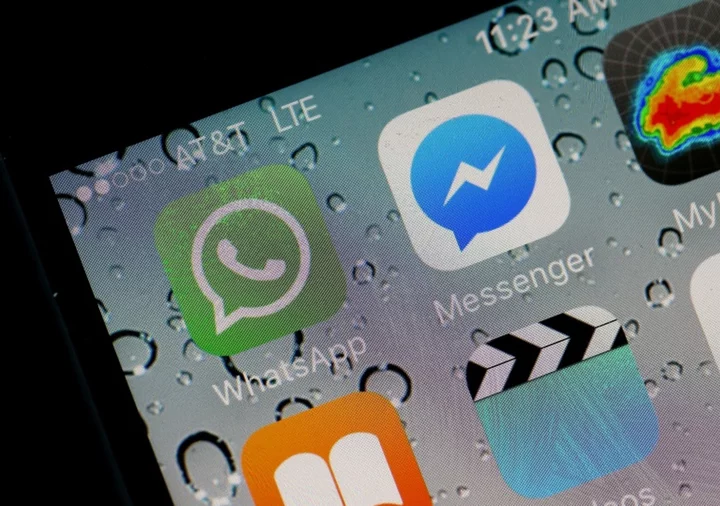Anyone looking for clues at how talks to raise the nation's borrowing limit and avoid a historic default are progressing between President Joe Biden and congressional Republicans might be confused ahead of a high-stakes meeting at the White House on Tuesday.
Entering the discussions, the two principal leaders offered distinctly different takes on the state of play.
"I really think there's a desire on their part, as well as ours, to reach an agreement," Biden told reporters during a Sunday afternoon bike ride, describing himself as a "congenital optimist."
Optimism was not the overwhelming sentiment from Biden's foil, House Speaker Kevin McCarthy.
"It doesn't seem to me yet they want a deal, it just seems like they want to look like they are in a meeting but they aren't talking anything serious," McCarthy, a Republican from California, told reporters entering the Capitol on Monday.
The speaker told House Republicans in a closed-door meeting on Tuesday that talks could be hitting a rocky period, according to an attendee. McCarthy urged his caucus to stick together and insisted that the White House won't get a "clean debt deal" -- something Biden has asked to maintain alongside separate negotiations about the budget.
"We have 16 days left and he wants to spend eight abroad. We are stronger together. Stick together. Stay strong," McCarthy said of Biden, according to another attendee.
The diametrically opposing outlooks lent Tuesday's meeting a degree of uncertainty. Time is running short to raise the borrowing limit ahead of June 1, which is the earliest date the Treasury Department says the government could be unable to pay its bills. Biden is currently scheduled to depart Wednesday for Japan, where he will attend a Group of 7 summit.
White House aides have spent the past week in talks with congressional officials for negotiations that both sides characterize as constructive. But they haven't yet produced a deal, and aides on both sides suggested an agreement wasn't yet within reach.
Still, simply the act of talking is more than had occurred until a week ago. And the looming deadline has made clear both sides are committed to averting a default, which would send the economy into tailspin.
That seemed to be what provided Biden his rosy outlook this weekend.
"I think we'll be able to do it," he said.
Tuesday's meeting was originally scheduled for last week, but both sides decided to postpone in order to give the staff-level talks space to proceed.
Aides have been working to identify issues with the highest potential for progress ahead of Tuesday's meeting in the Oval Office. That includes limits on federal spending, clawing back some unspent pandemic aid and changes to permitting rules for domestic energy production.
It also includes the potential for tougher work requirements for some government aid programs, something else Republicans have proposed in the discussions. Biden sounded guardedly open to such a provision Sunday.
"I voted for tougher aid programs (that are) in the law now, but for Medicaid it's a different story," he said. "And so I'm waiting to hear what their exact proposal is."
Shalanda Young, the director of the Office of Management and Budget, outlined the impact of proposed Republican spending cuts in a new memo Tuesday, warning that if the GOP preserves funding for the Departments of Defense, Veterans Affairs and Homeland Security as they've suggested, it could lead to a 30% cut in spending for other federal agencies.
Perhaps the greatest challenge to negotiators is the timeline. Biden's aides said Monday the president still intended to depart Wednesday for Asia, where he hopes to reinforce US allies amid growing tensions with China.
"We're planning to conduct this trip as scheduled," said John Kirby, the National Security Council spokesman, during a briefing with reporters Monday. "Look, on any presidential trip -- doesn't matter where he goes or when -- I mean, events back home and around the world can affect travel. But right now, there's no plans to curtail the trip or cut it short or to not go."
McCarthy said Monday a deal needs to be reached by this weekend in order for Congress to vote on it before the June 1 deadline. He was not optimistic that was possible.
"You got to have something by this weekend and we are nowhere near any of that," he said.
This story has been updated with additional developments.

